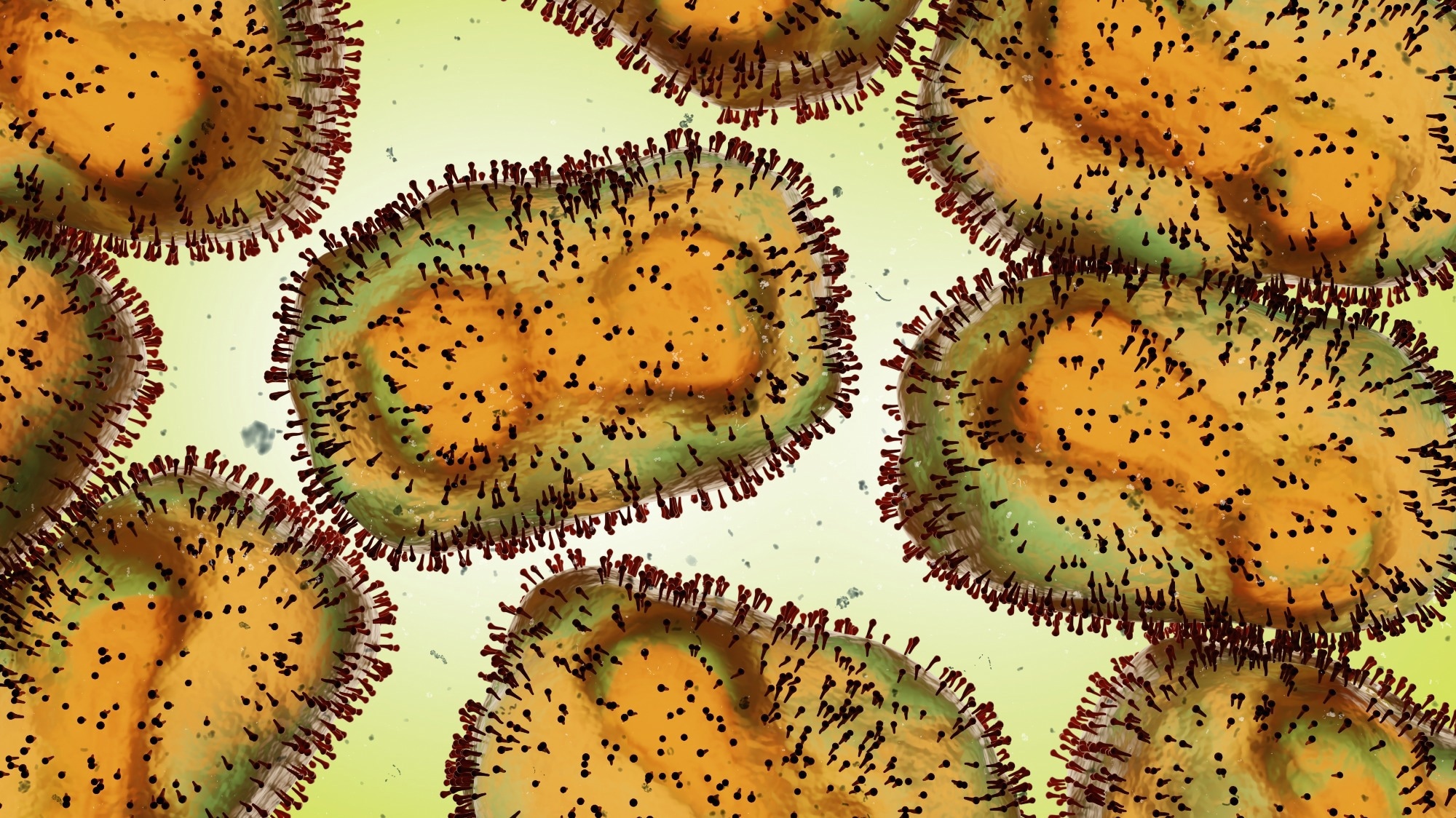In a recent study posted to the medRxiv* server, researchers at Georgia State University, USA, generated short-term forecasts of new monkeypox cases using an ensemble and subepidemic model.
 Study: Real-time forecasting the trajectory of monkeypox outbreaks at the national and global levels, July – October 2022. Image Credit: Dotted Yeti / Shutterstock
Study: Real-time forecasting the trajectory of monkeypox outbreaks at the national and global levels, July – October 2022. Image Credit: Dotted Yeti / Shutterstock

 This news article was a review of a preliminary scientific report that had not undergone peer-review at the time of publication. Since its initial publication, the scientific report has now been peer reviewed and accepted for publication in a Scientific Journal. Links to the preliminary and peer-reviewed reports are available in the Sources section at the bottom of this article. View Sources
This news article was a review of a preliminary scientific report that had not undergone peer-review at the time of publication. Since its initial publication, the scientific report has now been peer reviewed and accepted for publication in a Scientific Journal. Links to the preliminary and peer-reviewed reports are available in the Sources section at the bottom of this article. View Sources
Background
This year's monkeypox virus (MPXV) outbreak is very different from previous outbreaks in that it is highly uncertain concerning affected populations, transmission, and clinical characteristics. For instance, ~98% of cases in the US and Spain have occurred in males, with most identified as men having sex with men (MSM). Subsequently, MPXV cases have been surging in multiple nations since May 2022, especially in non-endemic countries, including the USA. With no historical precedence of how this outbreak might uncover further, mathematical models could help with real-time forecasts of the MPXV epidemic trajectory.
Since MPXV transmission is primarily due to close or direct contact with an infected individual's skin lesions, and respiratory secretions, basic public health measures could help control its onward spread. Accordingly, short-term forecasting could help evaluate the utility and efficacy of mitigation measures, including behavior changes that mitigate transmission rates, contact tracing, and vaccination, on growth trends against MPXV infections in the general population.
About the study
In the present study, researchers obtained publicly available data on confirmed weekly MPXV cases from the Our World in Data (OWID) GitHub repository and the Centers for Disease Control and Prevention (CDC) website for seven countries with the highest burden of disease at the time of study initiation and globally. These seven countries were the USA, Brazil, England, France, Germany, Spain, and Canada. They forecasted new MPXV cases four-week ahead for ten sequential weeks assessed with quantified uncertainty from the top, second-ranked, and ensemble sub-epidemic models from July 28, 2022, to October 13, 2022.
For the assessment of model fit and performance, the researchers computed the mean absolute error (MAE), mean square error (MSE), 95% prediction interval coverage (PI), and weighted interval score (WIS). The latter considered the uncertainty of the forecasts, while MSE and MAE assessed the average deviations of the mean model fit to the observed data.
Study findings
In total, the researchers conducted 324 weekly sequential four-week ahead forecasts across all studied nations and models. The study results confirmed an overall declining trend in the number of new MPXV cases globally and at a country level. The top-ranked and weighted ensemble models predicted that there could be 6232 new MPXV cases globally between October 20, 2022, and November 10, 2022. Based on the OWID data, this model predicted the highest number of new MPXV cases in the US, followed by Brazil and Spain. These two models exhibited the best forecasting performance across all study areas.
Conclusions
As stated earlier, a core group of higher-risk people, in this case, MSM, are driving the current 2022 MPXV epidemic. So as infection- or vaccination-elicited immunity develops in this core group, MPXV cases will decline naturally. It also seems possible to control the MPXV epidemic if these high-risk groups adopt public health measures. Another favorable factor is that unlike human immunodeficiency virus (HIV) and bacterial sexually transmitted diseases (STDs), MPXV neither has a lifelong duration nor is repeatedly acquired. Also, by August 2022, the availability of MPXV vaccines had increased in the US. It increased the proportion of MPXV vaccine recipients from 15% to 23% and 6% to 13% among the Hispanic and Black populations, respectively. In addition, high-risk groups appear to be driving declines in MPXV cases through behavioral modifications (e.g., limiting sexual encounters).
Most importantly, it will be beneficial to systematically assess the forecasting performance of the study models against other sub-epidemic models that outperformed the autoregressive integrated moving average (ARIMA) model that reliably forecasted 10 to 30-day ahead forecasts of daily coronavirus disease 2019 (COVID-19) deaths.

 This news article was a review of a preliminary scientific report that had not undergone peer-review at the time of publication. Since its initial publication, the scientific report has now been peer reviewed and accepted for publication in a Scientific Journal. Links to the preliminary and peer-reviewed reports are available in the Sources section at the bottom of this article. View Sources
This news article was a review of a preliminary scientific report that had not undergone peer-review at the time of publication. Since its initial publication, the scientific report has now been peer reviewed and accepted for publication in a Scientific Journal. Links to the preliminary and peer-reviewed reports are available in the Sources section at the bottom of this article. View Sources
Journal references:
- Preliminary scientific report.
Real-time forecasting the trajectory of monkeypox outbreaks at the national and global levels, July – October 2022, Amanda Bleichrodt, Sushma Dahal, Kevin Maloney, Lisa Casanova, Ruiyan Luo, Gerardo Chowell, medRxiv 2022.11.02.22281844; DOI: https://doi.org/10.1101/2022.11.02.22281844, https://www.medrxiv.org/content/10.1101/2022.11.02.22281844v1
- Peer reviewed and published scientific report.
Bleichrodt, Amanda, Sushma Dahal, Kevin Maloney, Lisa Casanova, Ruiyan Luo, and Gerardo Chowell. 2023. “Real-Time Forecasting the Trajectory of Monkeypox Outbreaks at the National and Global Levels, July–October 2022” 21 (1). https://doi.org/10.1186/s12916-022-02725-2. https://bmcmedicine.biomedcentral.com/articles/10.1186/s12916-022-02725-2.